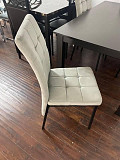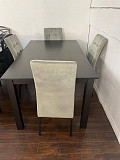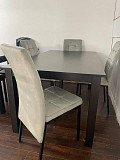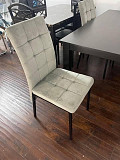Free classifieds on Yonfi.com in the USA: Home Services — 8 ads online! Buy, sell, or trade quickly and easily! Yonfi.com offers a simple and convenient platform to connect local buyers and sellers in the USA.
Whether you're clearing out gently used items or looking for affordable deals, our classifieds make it easy to find what you need or reach the right audience. Posting an ad is 100% free, fast, and requires no registration.
Browse listings by category, filter by location or price, and contact sellers directly. Yonfi.com Las Vegas also features classified sections for real estate, jobs, vehicles, electronics, services, pets, fashion, and more — all in one place.
Join thousands of users who trust Yonfi.com to buy, sell, and trade every day. Start posting now in the USA and turn your items into cash, or discover great bargains in just a few clicks.














